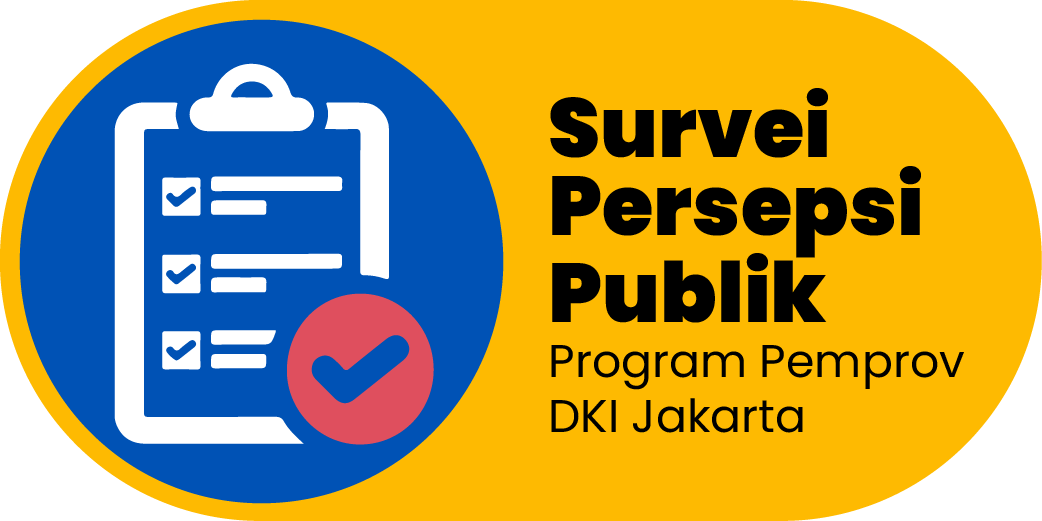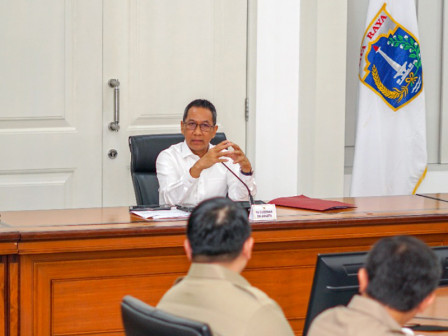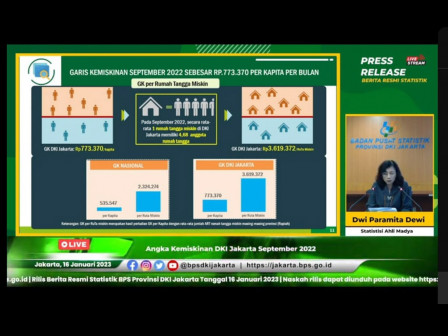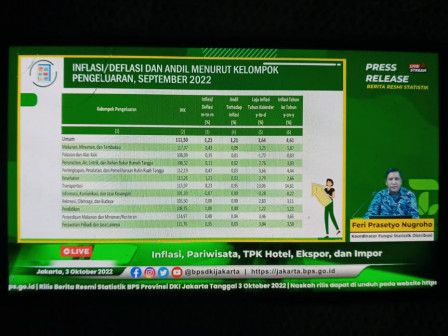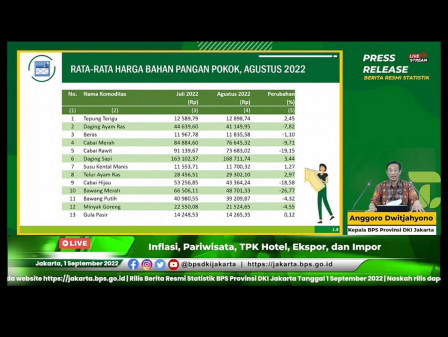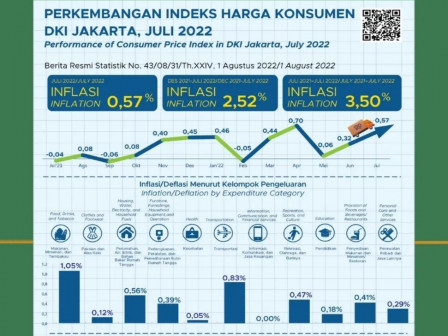Here is Jakarta's Strategy to Handle Extreme Poverty in Jakarta
Reported by Aldi Geri Lumban Tobing | Translated by Nugroho Adibrata
The Jakarta Provincial Government is committed to reducing extreme poverty levels. Several strategies have been implemented to achieve the target of 0 percent in extreme poverty by 2024.
I ask that all levels go directly to the field
Based on data released by the Central Statistics Agency (BPS), the extreme poverty rate in Jakarta as of March 2022 is 0.89%. As for the information, referring to World Bank data for 2020, the extreme poor people are residents spending less than or equal to USD 1.9 PPP (Purchasing Power Parity), or Rp 11,633/person per day or Rp 348,990/person per month.
The approach taken by BPS is based on a sampling of residents living in Jakarta. Hence, the Jakarta Government would carry out factual verification in the field based on name and address (by name, by address), by mobilizing all cross-sectoral components of the regional apparatus, starting from the urban village apparatus, ranks of Jakarta Social Agency (Dinsos), ranks of Jakarta Empowerment, Child Protection, and Population Control (PPAPP) Sub-agency, as well as involving the PKK and Dasa Wisma, so they can obtain more complete and accurate data coverage.
Jakarta BPS: Jakarta's Poverty Rate DeclinesJakarta Acting Governor, Heru Budi Hartono had instructed the ranks of the Jakarta Government to continue implementing the Integrated Poverty Intervention Program. The first intervention was to go directly to each region to validate and update data.
"I ask that all levels go directly to the field to obtain accurate data by name by address, thus the root cause of the problem can be found and interventions immediately carried out that is right on target. We make sure that the target of 0 percent can be achieved in 2024," he expressed, as quoted by Jakarta PPID's press release, Friday (2/3).
Then the second intervention carried out by the Jakarta Government is through a program to reduce the burden of spending on poor families which includes social assistance/service programs, including the Jakarta Smart Card (KJP) Plus, Jakarta Excellent Student Card (KJMU), BPMS (School Entrance Education Assistance) for private schools, and KAJ (Jakarta Children's Card) to fulfill basic needs including the nutritional needs of children aged 0-6 years.
Further, other social assistance/service programs, such as KPARJ (Jakarta Child and Youth Care Card) for children and adolescents whose parents died of Covid-19, KLJ (Jakarta Elderly Card), KPDJ (Jakarta Card for Persons with Disabilities), Health Social Security, Food subsidies, clean water subsidies, septic tank subsidies, flat housing subsidies, and transportation subsidies.
In the meantime, the third intervention would be through productivity and income programs, such as job skills training, job fairs, and integrated entrepreneurship (for start-up entrepreneurs). Then the fourth intervention is through regional-based poverty reduction programs, including Settlement Quality Management, Family Planning programs for Couples of Reproductive Age, and Provision of Supplementary Food for the Elderly and Toddlers.
To achieve the target of 0 percent is not easy, as there are various challenges, including the mobility of migrants to Jakarta and the ease of moving residents from outside the Jakarta ID Card to Jakarta. However, Acting Governor Heru and the ranks of the Jakarta Government will continue to ensure that the recipients of the Integrated Poverty Intervention Program remain on target.
